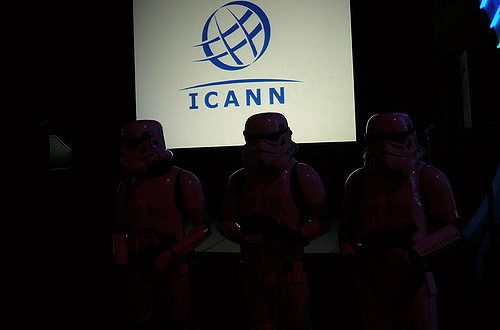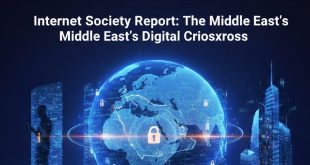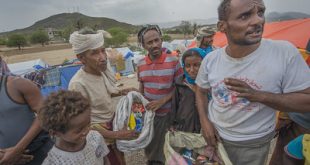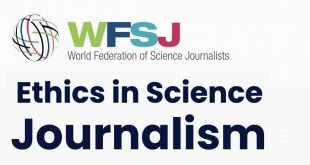By: Abdulrahman Abotaleb
“Everyone shall have the right to freedom of expression; this right shall include freedom to seek, receive, and impart information and ideas of all kinds, regardless of frontiers, either orally, in writing, or in print, in the form of art, or through any other media of his choice.” (Article 19 of the ICCPR)
This principle was adopted by the United Nations in 1966, almost a quarter of a century before the internet was conceived. At that time, platforms for free expression, whether accessible or restricted, were limited. Over the course of nearly three decades, the internet has transformed into a global medium of mass communication, enabling a wide range of expression. On 2 July 2012, the UN Human Rights Council adopted a resolution stating that “The same rights that people have offline must also be protected online.” In 2016, the UN declared online freedom of expression to be a human right that must be protected under the UN Human Rights Council’s resolution.
In today’s digital age, there are multiple ways in which freedom of expression on the internet can be restricted. These include obstacles to access, content restrictions, and limitations on the rights of users. Various stakeholders, such as governments, NGOs, the technical community, industry players, the private sector, and even users themselves, play roles in regulating online content. However, one of the most crucial entities in the regulation of the internet is the Internet Corporation for Assigned Names and Numbers (ICANN).
ICANN’s policies have a global impact, raising important questions about the role of domain name registrars accredited by ICANN and its Registrar Accreditation Agreement (RAA).
In this context, the Council of Europe (CoE) released a critical report on the application of human rights within ICANN. The report, titled ICANN’s Procedures and Policies in the Light of Human Rights, Fundamental Freedoms, and Democratic Values, highlights how the RAA violates international human rights standards.
The organization Article 19 also pointed out in a 2015 report that the RAA, along with ICANN’s privacy and data protection policies, has the potential to undermine not only freedom of expression but also privacy and data protection rights. This is particularly evident with the 2013 RAA, which governs the relationship between ICANN and domain name registrars.
Moreover, ICANN’s policies also overlook guarantees of freedom of expression. It expands the rights of trademark owners on the internet, while also setting up a process for ICANN to decide what ideas can be referenced in domain names and who can use them. While freedom of expression rights protect the non-commercial use of trademarks in language, ICANN’s policies bypass these guarantees by granting trademark holders a right to register domain names before non-commercial speakers have a chance to use the term. The Applicant Guidebook on new gTLDs (released in 2012) raised issues concerning freedom of expression, providing for procedures where public sensitivities or objections may be relevant to an application for a new gTLD. Each of these procedures may have significant implications for freedom of expression.
ICANN was aware that geographic names and politically sensitive areas would spark controversy. To address these concerns, ICANN maintained a list of prohibited and restricted geographic names for gTLDs, provided by the International Organization for Standardization (ISO). For example, the .arab domain name was designated as a geographic gTLD and assigned to the League of Arab States. However, when Amazon applied for the new gTLD .amazon, objections were raised by Brazil, Peru, and other governments. The application was initially approved, as the name did not appear on the ISO’s restricted list. These countries objected on the grounds that the name violated public interest and harmed the interests of the Amazon region. After internal deliberations, the Brazil- and Peru-led objection was submitted to the ICANN Board, which denied Amazon’s application. Amazon then appealed the decision and ultimately won, forcing the ICANN Board to reconsider its stance. Brazil, Peru, and their allies again opposed the .amazon application, and as of the spring of 2018, the decision was still pending.
Although Article 19 of the Universal Declaration of Human Rights guarantees the right to freedom of expression, including the right to receive and share information through any medium and across borders, ICANN is not legally bound by these internationally recognized free expression guarantees. ICANN sets policies at its own discretion under its corporate governance rules.
ICANN’s responsibility to respect freedom of expression and comply with the UN Guiding Principles would help address these concerns. In line with these principles, ICANN should develop policies that outline its commitment to preventing, assessing, and mitigating threats to freedom of expression associated with new gTLDs. While internet stakeholders have driven DNS standards and policies, there is a need for clear metrics to monitor ICANN’s performance regarding human rights. The multi-stakeholder approach to internet governance continues to evolve, and with the right mechanisms in place, it has the potential to ensure that the internet remains a space for free expression, protected for all users, across all borders.
References:
•UN Human Rights Council, The Promotion, Protection and Enjoyment of Human Rights on the Internet (A/HRC/20/L.13), New York: United Nations General Assembly, 29 June 2012.
•UN Human Rights Council, Promotion and Protection of All Human Rights, Civil, Political, Economic, Social and Cultural Rights, Including the Right to Development (A/HRC/32/L.20), New York: United Nations General Assembly, 27 July 2016.
•Lipton, J., & Wong, M. (2012). Trademarks and Freedom of Expression in ICANN’s New GTLD Process. Monash University Law Review, 38(1), 188.
•Kuerbis, B. (2017, November 28). New Research Paper on Content Regulation and Domain Name Policy. Retrieved from https://www.internetgovernance.org/2017/10/26/new-research-paper-content-regulation-domain-name-policy/
•Article 19 (2016, July 5). UN Human Rights Council Resolution on Protection of Human Rights on the Internet: A Milestone for Free Speech. Retrieved from http://www.osce.org/fom/250656
•B., I. M., & M. M. (2017). In Search of Amoral Registrars: Content Regulation and Domain Name Policy. 1-15. Retrieved from ICANN
•Mueller, M. (2017, November 20). Does ICANN Violate Human Rights? The Council of Europe Report. Retrieved from https://www.internetgovernance.org/2014/07/02/human-rights-in-icann-the-council-of-europe-report/?utm_source=rss&utm_medium=rss&utm_campaign=human-rights-in-icann-the-council-of-europe-report
•Z., & G. G. (2015). ICANN’s Corporate Responsibility to Respect Human Rights. 1-16. Retrieved from https://www.article19.org/data/files/medialibrary/37845/ICANN-PAPER-WEB.pdf
•Dawn C. Nunziato. (2003). Freedom of Expression, Democratic Norms, and Internet Governance, 52 Emory L.J. 187.
•Adam. Segal. (n.d.). The Case of .Amazon and What It Means for ICANN. Retrieved October 4, 2017, from https://www.cfr.org/blog/case-amazon-and-what-it-means-icann
•INTERNATIONAL CENTRE FOR DISPUTE RESOLUTION INDEPENDENT REVIEW PANEL. ICDR No. 01-16-0000-7056.
•Hivos, Module3 – Human Rights and Internet Governance in iGmena-DiploFoundation Course.
•W. (2016, October 7). Losing Internet Freedom. FRONTPAGE Mag. Retrieved from https://www.frontpagemag.com/fpm/264417/losing-internet-freedom-deborah-weiss
 الشبكة اليمنية للعلوم والبيئة (يمن ساينس) موقع يهتم بأخبار العلوم والتكنولوجيا والصحة والبيئة والسكان
الشبكة اليمنية للعلوم والبيئة (يمن ساينس) موقع يهتم بأخبار العلوم والتكنولوجيا والصحة والبيئة والسكان





